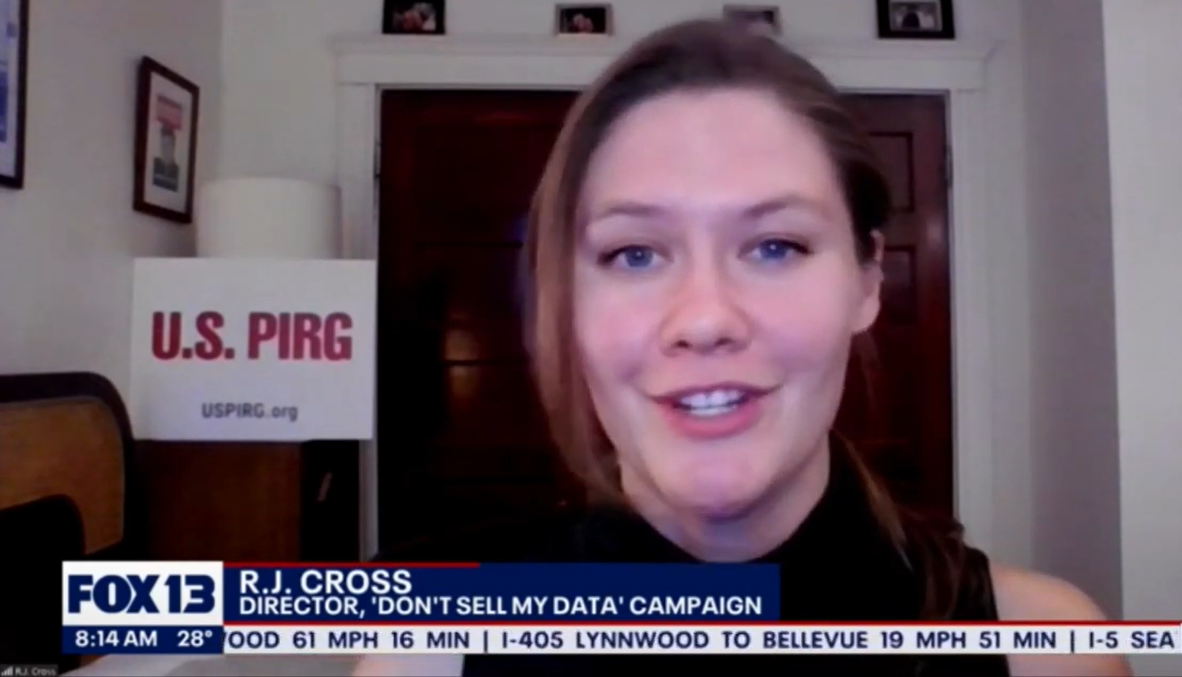
Don’t Sell My Data
Companies collect huge amounts of data about us, often without us knowing. These practices put us in harm's way for no good reason. Companies shouldn't collect more data about us than they need to deliver the services we're expecting to get.

Almost every company we interact with collects some amount of data on us. Sometimes it’s information the company needs to know to provide their service – Venmo needs your bank account number, and Uber needs your location.
Often, however, companies gather a lot more information about you than they really need to, and use it in ways that have nothing to do with delivering the service you’re expecting to get. This violates our data privacy, and can cause real trouble for consumers.
Data collection harms consumers
Data security
When companies gather extra data about you, and sell it to other entities, it increases the odds that your personal information will be exposed in a breach or a hack. The more companies that hold your information, the more at risk you are of being the victim of identity theft.
Scammers
You and your loved one’s data can end up in the hands of scammers looking to identify ideal victims. Scammers can use data like your web searches or health info to find people with dementia in order to target them with mail scams promising fake lottery winnings in exchange for a processing fee. In another example, a precious metals scam used highly targeted Facebook ads to get seniors to spend their retirement savings on grossly overpriced gold and silver coins.
Predatory advertising
Data collected online can be used to take advantage of our private weaknesses and insecurities. For instance, people searching terms like “need money help” on Google have been served ads for predatory loans with staggering interest rates over 1,700%. A recent investigation found Instagram content that promoted diet pills targeting users struggling with eating disorders. Harmful industries have always existed – but the big data system underpinning today’s Internet has allowed them an unprecedented ability to identify, reach and take advantage of their victims.
Invasive targeted advertising
In addition to outright predatory advertising, ad companies also target us with highly-personalized and invasive ads to convince us to spend money on stuff we don’t need, or even worse, exaggerate what we think is wrong with us in order to sell us a solution.
It doesn’t have to be this way. There’s no good reason for companies to gather more information about us than they need to provide us the service we’re expecting to get. If companies stopped harvesting our data, our information would be safer and our wallets fatter.
Together we can send a message to companies and decision makers alike: stop the collection of unnecessary data, and only use it for what I’m expecting.
Topics
Authors
R.J. Cross
Director, Don't Sell My Data Campaign, U.S. PIRG Education Fund
R.J. focuses on data privacy issues and the commercialization of personal data in the digital age. Her work ranges from consumer harms like scams and data breaches, to manipulative targeted advertising, to keeping kids safe online. In her work at Frontier Group, she has authored research reports on government transparency, predatory auto lending and consumer debt. Her work has appeared in WIRED magazine, CBS Mornings and USA Today, among other outlets. When she’s not protecting the public interest, she is an avid reader, fiction writer and birder.
Find Out More

A look back at what our unique network accomplished in 2023

Campaign for Columbia Sportswear Commitment to Eliminate PFAS Launched Today

Businesses, it’s time to think on top of the box
